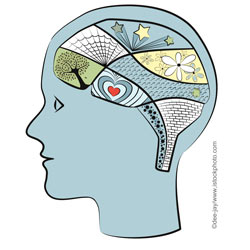Child psychology: Emotional development
Add to My Folder
Discover ways to support and promote emotional wellbeing in your class

Most people would agree that an individual’s emotional development is a fundamentally important, life-long task. By the end of Key Stage 2, children should have some understanding of the importance of managing their own and others’ emotions constructively. Psychology can offer many insights into emotional development, which teachers – who are key people in this process – can use.
Emotional wellbeing
Historically, most psychological studies of children’s emotional development have tended to focus upon the problematic. However, in recent years, psychologists such as Daniel Goleman, author of Emotional Intelligence (Bantam Books) and Martin Seligman, founder of the Positive Psychology movement, have helped to raise awareness of the crucial role of emotional wellbeing in people’s lives, starting from childhood.
Scholastic Resource Bank: Primary - join today!
- Over 6,000 primary activities, lesson ideas and resources
- Perfect for anyone working with children from 5 to 11 years old
- Unlimited access from just £1.25 per month
Already a member? Sign in below.
Published 27 October 2008
Reviews
Rated 4/5 from 1 rating
You need to be signed in to place a review.